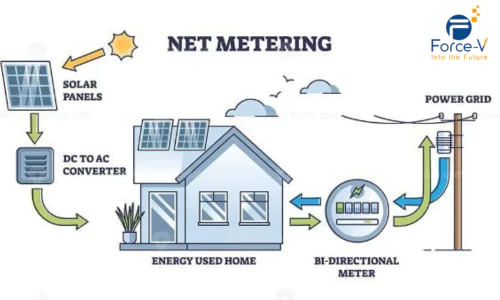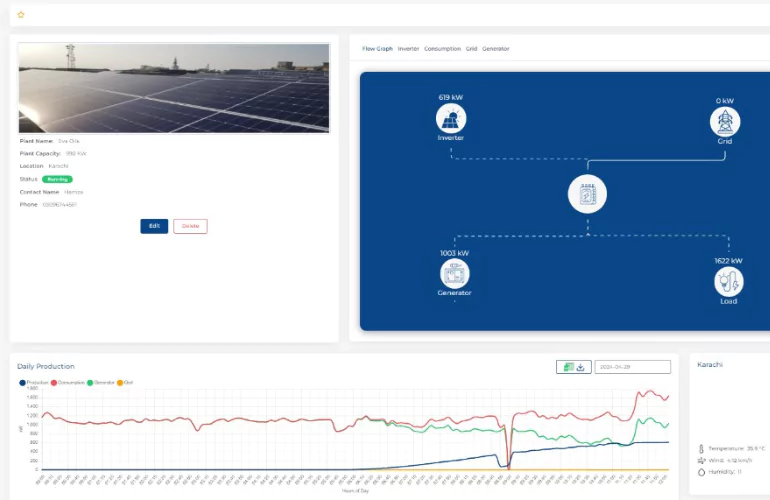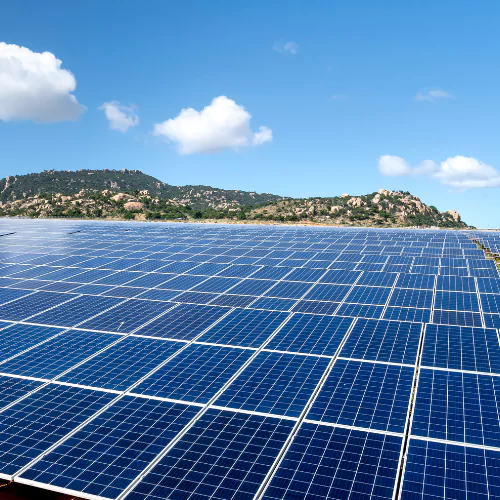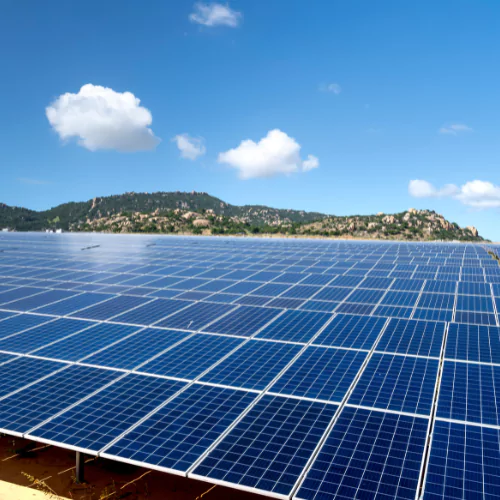What Is Net Metering in Pakistan?
In today’s world, where energy demands are constantly rising and the need to reduce carbon emissions is more pressing than ever, sustainable energy solutions have become essential. One innovative concept gaining traction in the energy sector is net metering.
But what exactly is net metering? How does it work, and what are its implications for the people of Pakistan? In this comprehensive guide, we will explore the ins and outs of net metering, its history in Pakistan, its benefits, and how you can implement it to not only save on electricity bills but also contribute to a greener, more sustainable future. So, let’s delve into the world of net metering and discover how it can transform our energy landscape.
What is Net Metering?

Understanding the Basics
Imagine you’ve just installed a shiny new solar panel system on your roof. As the sun beams down, your panels convert sunlight into electricity for your home. But what happens when you produce more energy than you use? That’s where net metering comes in.
How Does Net Metering Work?
Net metering is a billing arrangement that lets homeowners and businesses who generate their own electricity through solar power (or other means) send unused energy back to the local power grid. In return, they receive a credit on their electricity bill for each kilowatt-hour fed back. Think of it as “rolling back” your electricity meter. It’s like banking, but with energy! Pretty neat, right?
The History of Net Metering in Pakistan
Early Beginnings
The concept of net metering was introduced in Pakistan in 2015 by the National Electric Power Regulatory Authority (NEPRA). The goal was to make renewable energy more appealing and accessible to the masses.
Recent Developments
Today, net metering adoption has significantly increased across Pakistan. It’s transforming the energy landscape, helping the country tap into its abundant solar potential and paving the way for a greener future.
Benefits of Net Metering
Energy Independence
With net metering, you essentially become your own energy producer. No more total dependence on the power grid. It’s an empowering feeling, isn’t it?
Economic Advantages
Imagine slashing your electricity bill by up to 50% or even 100%. With net metering, this isn’t just a dream—it’s a reality for many households and businesses in Pakistan. The savings can be substantial, making a noticeable difference in your pocket.
Environmental Impact
Net metering promotes the use of renewable energy sources, helping to reduce our reliance on fossil fuels and lowering greenhouse gas emissions. It’s a win for you and a win for Mother Earth.
How to Implement Net Metering in Pakistan
Understanding the Process
Implementing net metering in Pakistan involves several key steps. It may seem daunting, but breaking it down into smaller parts makes the process manageable. Here’s a step-by-step guide to help you navigate the path toward a greener future.
- Initial Assessment and Planning:
- Assess your energy needs by examining your electricity bills and surveying your property for good sunlight exposure.
- Selecting a Service Provider:
- Choose a reputable solar power system provider with a track record of successful installations. They can guide you on the best system for your energy needs and budget.
- System Design and Installation:
- The provider will design a solar system tailored to your needs and install it at your property, which involves mounting solar panels, setting up inverters, and connecting to your electrical grid.
- Approval and Inspection:
- Apply for approval from your local Distribution Company (DISCO), which will inspect the installation to ensure it meets safety and technical standards. Upon approval, you can proceed.
- Net Meter Installation:
- Once approved, a net meter is installed at your property. This device measures the electricity you consume from the grid and the surplus electricity your solar system feeds back into it.
- Enjoy Your Solar Power:
- Start generating your own electricity and earning credits for any surplus power fed back into the grid. Over time, these savings can help recover your initial installation costs.
Implementing net metering is about more than just saving on electricity costs; it’s also about contributing to a greener Pakistan. It’s a journey toward sustainability that benefits the community and the environment.
Key Challenges and Possible Solutions
Despite its promise, net metering in Pakistan faces several challenges, including:
- Lack of awareness
- Technical issues
- Financial constraints
Addressing these challenges requires efforts from stakeholders, including government bodies, DISCOs, and consumers themselves.
The Future of Net Metering in Pakistan
Potential Growth and Expansion
The future looks bright for net metering in Pakistan. With an average of 8 to 9 hours of sunshine per day, the solar potential is immense. Plus, the falling cost of solar installations is making it a more accessible and appealing choice for energy generation. We could see a significant surge in the use of net metering across the country in the coming years.
Government Policies and Regulations
A critical component for the success and growth of net metering in Pakistan rests on effective government policies and regulatory frameworks. Recognizing the transformative potential of renewable energy, the Pakistani government has been making strides in this area.
The government’s ‘Alternative Renewable Energy Policy 2019’ sets a target to achieve 30% renewable energy in the country’s total power production by 2030. This policy encourages the adoption of net metering, provides incentives for homes and businesses to install solar systems, and contributes to the national grid.
Furthermore, the National Electric Power Regulatory Authority (NEPRA) plays a significant role in the net metering landscape with its ‘Net Metering Regulations.’ Introduced in 2015, these regulations provide a comprehensive framework for consumers who wish to install a renewable energy system and supply excess power back to the grid.
However, to effectively harness the full potential of net metering, the government must address certain challenges. These include streamlining the registration and approval process for new installations, ensuring consistent policy enforcement, and improving coordination between different departments and stakeholders. Additionally, comprehensive and regular training should be provided to the staff of distribution companies to efficiently handle net metering systems.
Education and awareness campaigns sponsored by the government can also play a pivotal role in promoting the understanding and adoption of net metering across the country.
Conclusion
Net metering holds great promise in reshaping Pakistan’s energy landscape. It offers a cost-effective solution for energy production, reduces carbon emissions, and promotes sustainable living. By harnessing solar energy, households and businesses in Pakistan can enjoy energy independence and contribute to a greener future.
Whether you’re a homeowner looking to cut down your energy bills, a business investing in sustainable practices, or a policymaker working towards a greener Pakistan, understanding and implementing net metering is a step in the right direction.
As Albert Einstein once said, “Energy cannot be created or destroyed, it can only be changed from one form to another.” With net metering, we’re transforming abundant solar energy into usable electricity, and feeding any surplus back into the grid, driving us towards a sustainable and energy-efficient Pakistan.
From our discussion today, I hope you now have a clearer understanding of what net metering is, its benefits, and how it works in Pakistan. The journey to energy independence and a greener Pakistan is on, and every kilowatt we feed back into the grid brings us a step closer to this goal.
So, are you ready to flip the switch and join the net metering revolution?
Also Check:






